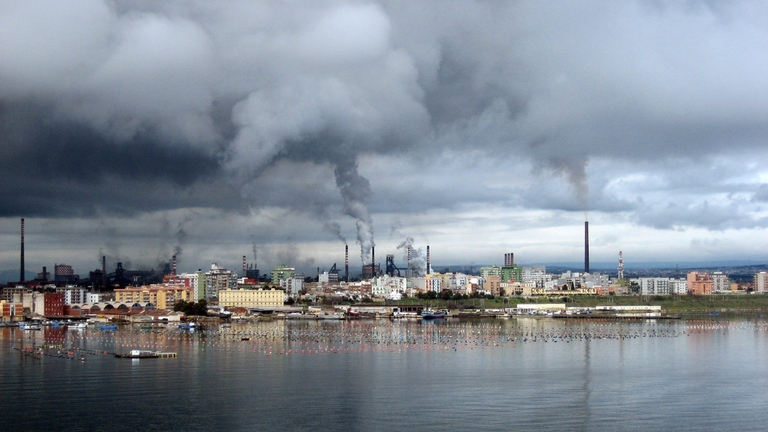https://www.lifegate.it/idrogeno-tenaris-dalmine
- |
- The 6-month trial has begun at the Tenaris plant in Dalmine which involves the use of hydrogen in steel processing.
- The steel sector is part of the so-called hard to abbot, that is, where it is more complicated to cut emissions for the energy transition.
- At the same time, it is a sector that weighs heavily on the Italian and European economy in general:the transition to hydrogen would be a real turning point.
A steel plant, that of Tenaris Dalmine, powered by hydrogen.It still seems like a futuristic hypothesis, especially in some realities from which one cannot escape, but it has just started in recent days the first experimentation involves the use of hydrogen in a plant for processing steel products.The experimentation arises from the collaboration between Tenaris, leading company in the production of pipes and energy services, Snam, one of the main European energy infrastructure operators, e Tenova, a company whose core business is the development and supply of sustainable solutions for the energy and ecological transition of the metallurgical industry, and will be carried out at the Tenaris Dalmine, in the province of Bergamo.
The future is experienced in Dalmine, for 6 months
The project will have an initial duration of 6 months and intends evaluate the performance and reliability of the use of hydrogen in the steel industry and, more generally, in the sectors hard to abbot, how are those most difficult to decarbonise defined, just like the steel industry.The objective is to use hydrogen produced directly in the plant, and which will be used to fuel a burner recently developed by Tenova (100 percent H2 ready) installed in a heating oven for hot rolling of seamless tubes.
The test will also contribute to defining and implementing safety guidelines and plant management procedures, thus starting the development of integrated solutions that can substantially reduce CO2 emissions from industrial production processes hard to abbot.
Tenaris Dalmine will make the site and the heating furnace available; Snam, enhancing its skills in technologies related to hydrogen and in the transport of molecules, will put a alkaline electrolysis system available to Tenaris Dalmine, which will operate it to produce the hydrogen necessary for the test. Tenova, finally, it will complete the value chain of the process, providing burners specifically made to be fueled with hydrogen.The project also included the contribution of Techint Engineering & Construction, in particular in the design, development of risk analysis and verification of safety standards.
Second Michele Della Briotta, president of Tenaris in Europe, “with this project we are verifying the feasibility and creating the skills to use hydrogen as a green fuel in our industrial processes;this contributes to theTenaris' global objectives to reduce its carbon footprint 30 percent by 2030”.More generally, if the experiment were successful, it would be a big step forward towards the use ofhydrogen without emissions within industrial production plants or other application contexts.
The impact of the steel industry
The steel industry is fundamental to the economy of Europe, where there are around 500 active plants, and also of Italy, being one of the main national production sectors.In 2022, according to Federacciai data, only in our country has there been a production of 21.599 million tons:Italy is the second steel producer in Europe, after Germany and before France, with a third of Italian steel being produced in Taranto and Piombino.The turnover of the Italian steel industry was 70 billion euros, thanks also to growth in sectors such as construction and household appliances, employing over 30 thousand workers.

At the same time, however, the steel industry perhaps represents the sector hard to abbot by definition, the one in which abandoning the fossil is more complicated:in Italy this is clearly demonstrated by the case of the former Ilva in Taranto, now entrusted to Acciaierie d'Italia, of which the Court of Justice of the European Union just a few days ago asked for the plants to be closed, in case the health impact assessment still presents serious health risks as it has for decades.And how, perhaps it continued to be the case even after the move to Acciaierie d'Italia, since an investigation was recently opened by the Bari Prosecutor's Office regarding an alleged falsification of data relating to CO2 emissions attributable to Adi's activities in the more recent years.Perhaps a total reconversion of this and other steel plants could finally combine the right to work and the right to health and a healthy environment.
